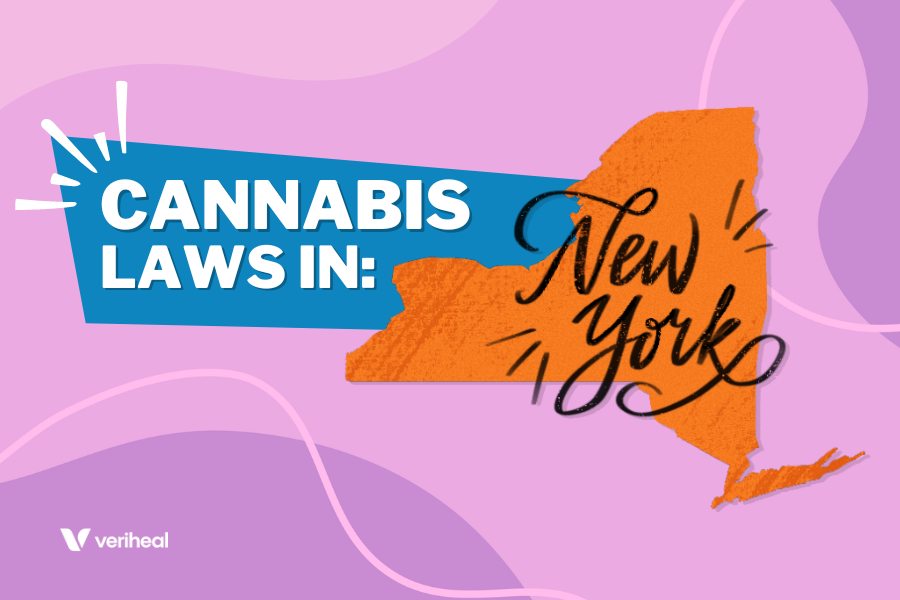The New York cannabis landscape is constantly changing. In 2021, Albany lawmakers passed the Marijuana Regulation and Taxation Act (MRTA), permitting New Yorkers to buy, use, possess, consume, and transport cannabis and its products within the state, with caveats that users must:
- Be 21 years or older
- Not possess over 3 ounces of cannabis buds
- Not possess more than 24 grams of cannabis concentrates (used for products like vape pen oils, tinctures, shatter, or butter)
- Not smoke cannabis in no-tobacco-smoking zones, including restaurants, public parks, subway, and bars
New York legal cannabis—including framework and all legal cannabis activities within the state—is regulated by the Office of Cannabis Management (OCM) and Cannabis Control Board.
Here are some of the basic things every cannabis-using New Yorker should know.
Finding a Legal Cannabis Dispensary
Following the decriminalization of cannabis in New York, quite a number of unlicensed shops with non-compliant products entered the baby market. Misleading labels, with false claims about quality and ingredients, were disturbingly abundant on vendors’ shelves.
Reports of these sharp practices informed the approved raid on unlicensed shops by Gov. Kathy Hochul, an operation that mainly targeted Manhattan. The crackdown yielded but little success, as unlicensed cannabis sellers are still having a field day in the market, to date. Most concerning is their adverts say they’re licensed, thereby cashing in on unsuspecting buyers’ ignorance.
How to Tell a Licensed New York Cannabis Dispensary From an Unregulated Shop
Before patronizing any acclaimed licensed cannabis store, look out for the “Dispensary Verification Tool,” a consumer protection measure identified by a blue and white sticker, ideally mounted at the store’s entrance. The sticker comes with a QR code that helps cannabis shoppers verify that the shop is on OCM’s list of vetted cannabis dispensaries. If you don’t find it, something isn’t right with the store.
To further verify if your purchase is regulatory-compliant, check the product label for a THC-crested yellow triangle, 21+ red-circled symbol, and the New York State map on a black background.
Products You’ll Find in Legal Cannabis Shops
Tinctures, e-juice, edibles, lotions, buds, and everything cannabis are allowed in cannabis stores. However, only products sourced from cannabis farms within the state are licensed and regulated by the state authorities.
The Lingering Scarcity of New York’s Legal Cannabis Stores
Years after New York legal cannabis laws took effect, local dispensaries are still scarce, as cannabis dispensaries open at a snail’s pace.
One reason for this snail-pace establishment of cannabis dispensaries is that the state reserved the first batches of New York’s legal cannabis licenses to people with a history of cannabis-related convictions, unlike other states where large, well-funded organizations and established medical cannabis brands were first to obtain operation licenses.
Why You Should Get Your Medical Marijuana Card
Veriheal has satisfied millions of patients nationwide by giving them access to these benefits
- Larger purchase limits
- Peace of mind
- Enhanced legal protection
- Access to higher potency strains
- Save up to 25% on cannabis purchases
- Skip the line at the dispensary
Currently, New York seeks $150 million to fund more dispensaries across the state. Pending the realization of this fund, the regulatory body has permitted licensed businesses to start up their private-funded dispensaries for cannabis sales and delivery. In support, New York’s Dormitory Authority, responsible for the legal cannabis program’s real estate, vowed to assist licensees with low-interest loans to expedite setting up individual sites.
Legal Weed Delivery in New York
People who detest the long drive to cannabis shops, the queues at cannabis shops, and users who wish to keep their cannabis use confidential can opt for home delivery services, which is legal for New Yorkers 21 years and above.
But with the scarcity of cannabis retailers, only a handful of dispensaries deliver cannabis to buyers’ addresses. While we await more delivery stores to open soon, it’s okay to ask your dispensary if they can send over your purchase. You might get a lucky YES.
Taxes on Legal New York Cannabis Products
Taxes on legal cannabis purchases vary from product to product—primarily based on product type and potency. But expect to pay at least 13% on tax when buying cannabis products in New York.
Note that the higher the THC concentration, the higher the tax. For instance, you’ll spend more on tax for cannabis resins and concentrates than on flower.
Private Growing in New York Cannabis
New Yorkers 21 years or older and with a medical cannabis card can grow cannabis in their homes—but not more than six plants, consisting of three mature and three infant stems.
The 2021 recreational cannabis law permits ANYONE 21 and above to own up to six cannabis plants in residential properties. However, the OCM has yet to regulate non-medical home cultivation; hence, only medical cannabis users can home-grow. Presently, home growing for personal use is unregulated and, thus, prohibited.
Also, some property owners or managers outrightly ban cannabis growing within their premises. Regulators advise Medical patients affected by such regulations to discuss with their adult caregiver to help out.
Cannabis Bars Coming Soon
As the regulators fine-tune the rules and regulations, New York may see cannabis bars soon—just like alcohol bars. Currently, the Cannabis Control Board has yet to establish rules and regulations and issue licenses to legal cannabis bars, hence the delay in the establishment of cannabis lounges.
While the board has drafted a list of regulations for retail facilities for existing dispensaries, New York’s legal cannabis industry awaits comprehensive regulatory provisions and licenses for full-fledged cannabis lounges.
Interested in getting your New York medical cannabis card? Book an appointment with a New York MMJ doctor to see if you qualify!
Author, Share & Comments








